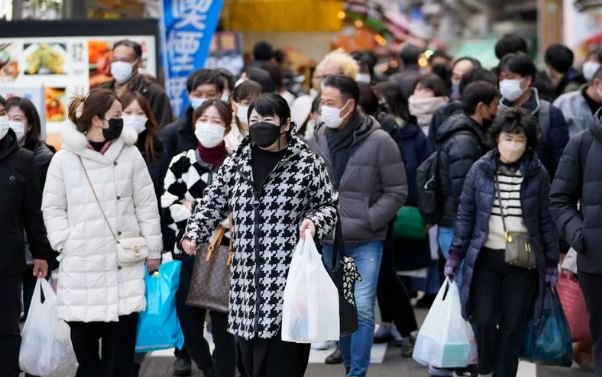Japan on Friday Dec 30, 2022 began requiring COVID-19 tests for all passengers arriving from China as an emergency measure against the nation’s rising infections and as Japan faces a surge in the number of cases and a death record.
On the eve, Japan reported a record 420 coronavirus deaths, breaking the previous record of 415 deaths reported on Wednesday, according to the Ministry of Health.
The death numbers are higher than those reported daily at the peak of the previous outbreak in August, when they topped 300. Experts said the latest rise is unclear, but could be related to deaths from worsening illness. chronic among elderly patients.
Japan tightened its border measures on Friday, making the antigen test already carried out on passengers suspected of being infected mandatory for all people coming from China. Those who test positive will be quarantined for up to seven days at designated facilities and their samples will be used for genome analysis.
The measures were implemented ahead of the New Year holidays, during which many people travel and attend parties. Direct flights between China and Japan will be limited to four Japanese airports for now, government officials said.
A few months ago, Japan stopped requesting COVID-19 tests for people arriving in the nation who had at least three doses of the vaccine, as part of a cautious relaxation of the measures implemented by the pandemic after it the country closed its borders to foreign tourists for two years. This year’s holiday season will be the first without restrictions on the virus, aside from recommendations on mask wearing and testing.
Currently, Japan is reporting about 200,000 cases daily.
In a meeting held a few days ago, experts warned that the rapid spread of influenza this winter also has the potential to put pressure on medical systems.
China recently revoked anti-virus controls that kept the country isolated for nearly three years and this week announced plans to reissue passports and visas for foreign travel. This could send many Chinese abroad for the Lunar New Year holiday in January, raising concerns about the possible spread of the virus.
India, Italy, South Korea and Taiwan have also responded to the Chinese wave of infections by requiring virus tests for visitors from China. The United States announced Wednesday that it will require testing of all travelers from China starting January 5.

